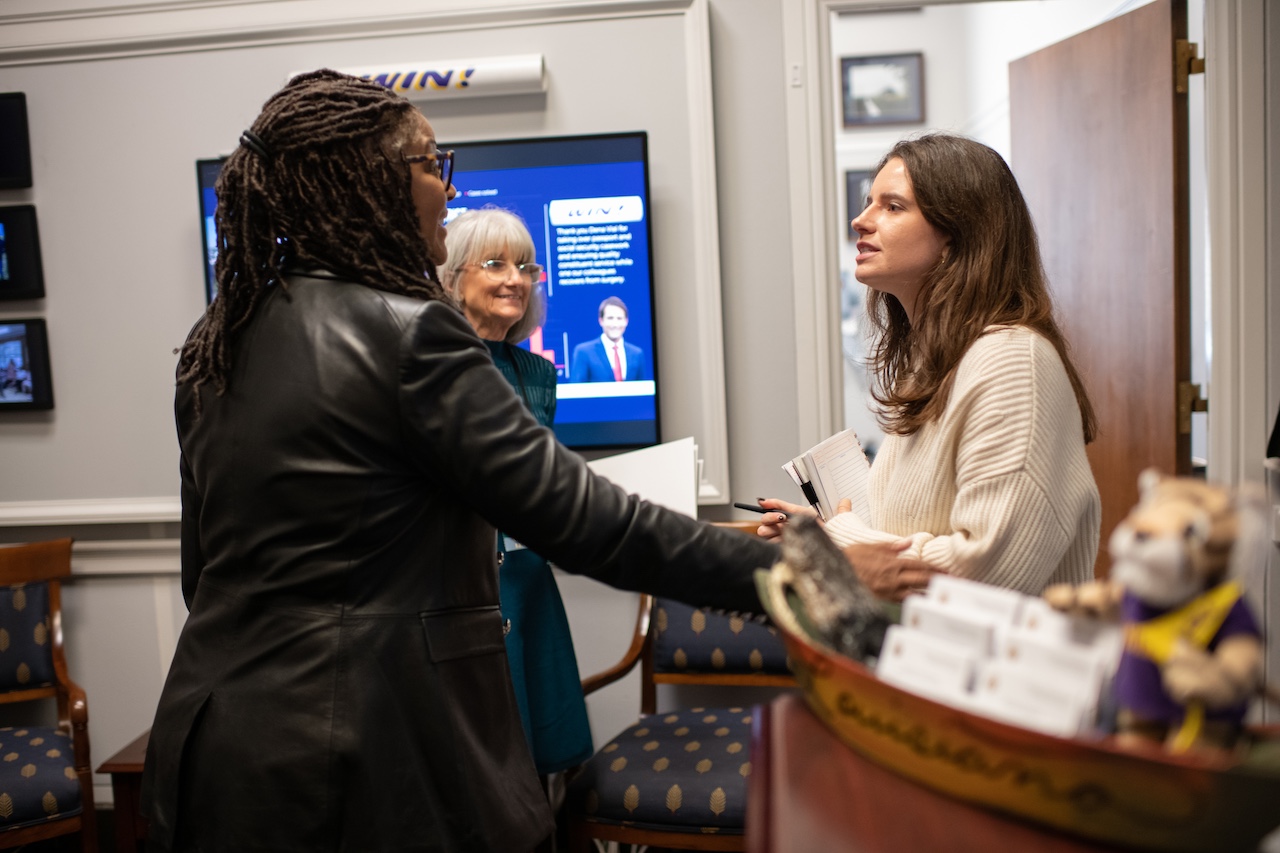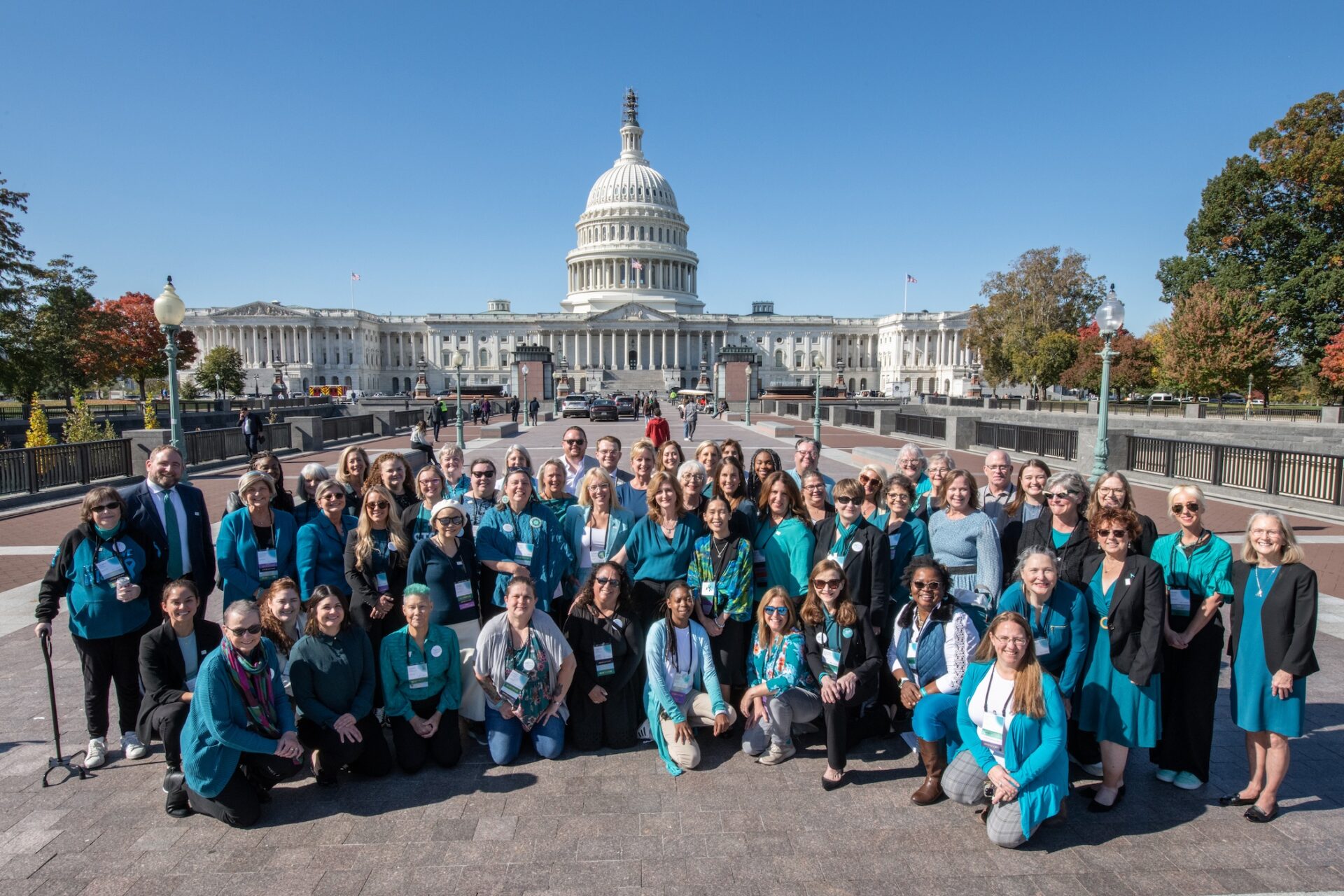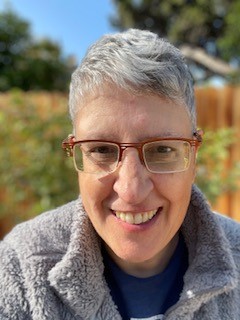
B. Dana Kivel has a plea to the ovarian cancer community, to medical professionals, to the world: “See me. Listen to me. I’m one of the people, the tens of thousands of people who have metastatic ovarian cancer.” But while Dana has a gendered gynecologic cancer, their gender identity does not align with what one would expect of someone who has ovarian cancer.
Dana’s Story
Dana is a professor at Sacramento State University in the Department of Recreation, Parks and Tourism. A professor of leisure studies (who, ironically, proclaims to be “a bit of a workaholic”), they teach a course called “Race, Class, Gender and Leisure.” In that class, Dana talks about gender as something people have created and stresses to their students that biology is not destiny.
“The ways in which people develop their gender identities, the ways in which it manifests,” they said, “is all socially and ideologically constructed. For example, I was assigned female at birth, but do not now identify in that way.”
Dana grew up in Tyler, Texas and came out first as a lesbian in 1978. “It was a pretty horrific experience,” they said. “Harassment, threats of physical violence … I’m also Jewish, so I was already a devil incarnate according to some.”
This experience compelled Dana, years later, to cofound the Lavender Youth Recreation & Information Center (LYRIC), an organization in the Bay Area that supports young LGBTQIA+ people. “It was great to have the opportunity to create something that was affirming of young people who were coming out.”
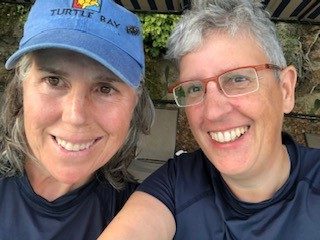
In fact, Dana’s been involved in community work for more than three decades – training and overseeing faculty to teach Sacramento State students to work with hundreds of community partners, serving on an advisory board for the city to guide in its budgeting proposals, working as a professor in the Department of Recreation, Parks and Tourism at Sacramento State University, and serving on various nonprofit boards and co-founding several other nonprofit organizations.
It wasn’t until three decades after they had come out as lesbian, that Dana began exploring gender identity as well, questioning things.
“Just in the back of my mind,” Dana said, “I kept thinking about that.”
In 2008, they changed their name from Beth (keeping the ‘B’ as part of their name out of deference to their family, and the person they had originally been named after) and switched to Dana, their middle name.
A devastating diagnosis
A few years later, in late 2011, Dana was diagnosed with a rare form of ovarian cancer, granulosa cell tumor. In the past 10 years, Dana has undergone four surgeries, dealing with recurrences and new tumors in other areas of their body; and in 2017, received five months of chemotherapy. Dana is currently taking aromatase inhibitors, estrogen blockers, to reduce the size of a current tumor.
“You have cancer, and that’s challenging enough,” they said. “But then you have a gendered cancer, and it’s aligned with the gender identity with which you do not identify. So there’s a disconnect.”
In 2015, Dana pursued medical interventions to transition. They were scheduled to have a bilateral double mastectomy in June, but severe pain in their abdominal area and a cat scan revealed that the cancer had returned, so the mastectomy surgery was postponed until November. Then in 2016, Dana wanted to pursue taking hormones to further along the transition process. They spoke with their primary care doctor about this course of treatment, and he consulted with their endocrinologist and gynecologic oncologist. Medically, the team advised against it because the doctors were unsure if the hormones would negatively impact Dana’s health.
“That was fundamentally and profoundly disappointing. I had to then deal with emotionally reconciling the fact that I couldn’t medically transition, and thus began to more fully internalize an identity of being nonbinary,” Dana said. “I mean, I could identify as a trans man, but I don’t honestly feel that way because I want to have things align in my body. And that’s just not going to happen.” Dana now identifies as nonbinary and/or gender queer and is searching for a granulosa cell tumor group where they can feel comfortable and a part of a community.
Advocating for inclusivity
Dana has found themself in the position of having to challenge what it means to have been born with ovaries, and then be diagnosed with what is seen as a women’s cancer even though they don’t identify as a woman.
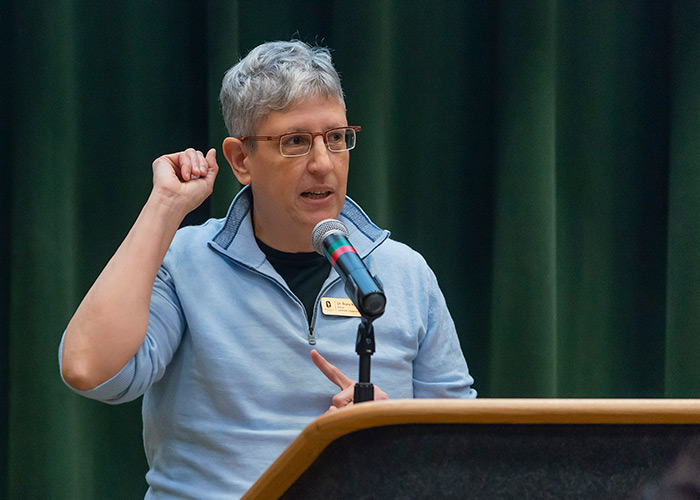
“We’re always having to kind of educate people,” Dana said about themself and their wife, Sharon. “When I go in for surgery, the first thing Sharon does is say, ‘Okay, on the board, we are going to put Dana’s pronouns, and this is what Dana wants to go by.’”
They write letters to the head of the hospital, they explain to nurses why they didn’t check ‘male’ or ‘female’ on the medical intake forms. “But it’s kind of a drag to always have to be educating people in the midst of recovering from surgery or as I am going in to meet with healthcare providers,” Dana said.
Dana also volunteers with OCRA’s Survivors Teaching Students program, sharing their diagnosis and treatment story with rising healthcare professionals, and has spoken to pharmaceutical companies through the LGBT Cancer Network, raising awareness of the potential interaction their drugs may have on someone who is transitioning.
When asked what the medical community can do to be more inclusive of trans and nonbinary folks in their care, Dana said, “Just being aware and being prepared to know how to respond if a patient says, ‘I’m nonbinary or I identify as transgender.’ How will you approach my treatment plan? What do you need to know from me to ensure I get the best care possible?”
Dana wants to increase awareness and sensitivity. While they believe it’s incumbent on each individual to share their identity with those who may not know, or who might make assumptions, they want healthcare professionals to be aware that things aren’t always black or white.
Becoming an advocate
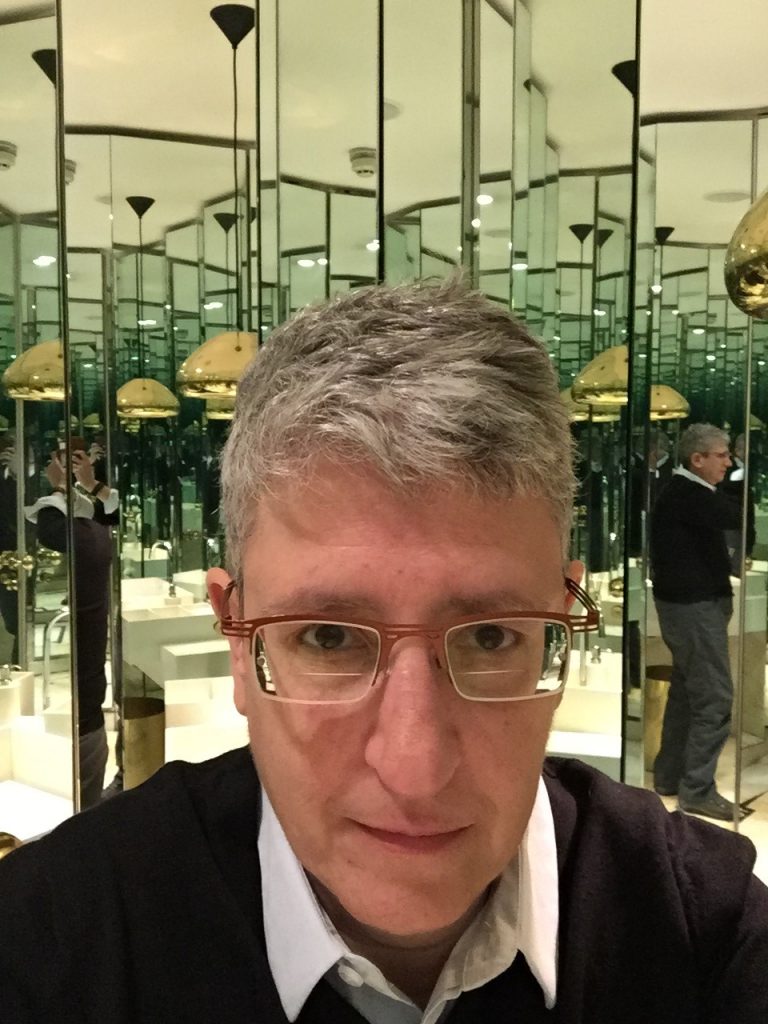
Ultimately, Dana just wants to be seen and recognized. While they know ovarian cancer is a gendered cancer – “and, therefore, an underfunded one because of the folks who typically get this diagnosis!” – Dana noted this gendered cancer includes people who don’t affiliate with a particular gender identity.
Dana looks at the change our society has gone through in recent decades – from marriage equality to transgender rights even being discussed and enacted upon – and calls this transformation “meteoric.” But they believe there is always more that can be done to increase awareness, to increase acceptance, and ultimately, bring about more empathy.
“I’m here. I’ve had ovarian cancer – metastatic ovarian cancer for 10 years,” Dana said. They would like to add their voice to this fight – raising funds for research, engaging with policymakers, and generating awareness around ovarian cancer. “The more that people are aware of trans men and nonbinary people with ovarian cancer, the more there’s the chance of different kinds of research that can be done,” Dana said. “You can include more people who can be doing this work – the educating, the advocacy.”

